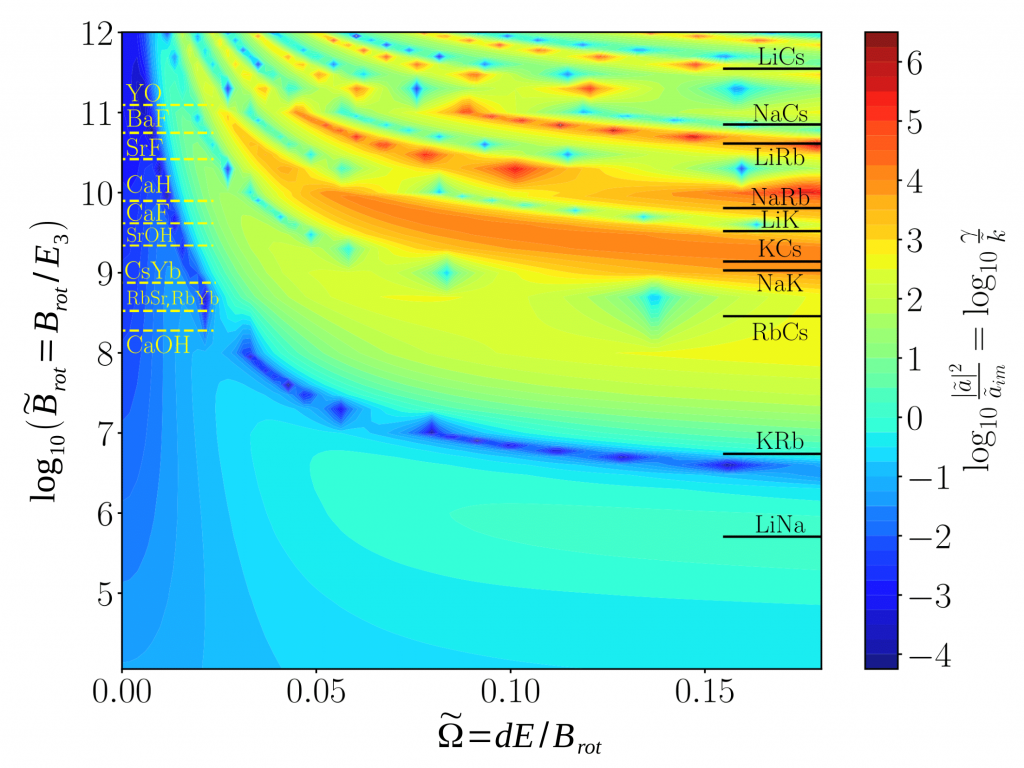OR 3: quantum applications
 We have demonstrated over the last few years different ways to protect molecules from
molecules against harmful collisions. These shielding means are now for the most part
experimentally feasible. This opens the door to the quantum degeneracy regime, for the
formation of Bose-Einstein condensates or degenerate Fermi gases. The macroscopic and collective aspects
and collective aspects will become important and will guide the perspectives to be explored.
We have demonstrated over the last few years different ways to protect molecules from
molecules against harmful collisions. These shielding means are now for the most part
experimentally feasible. This opens the door to the quantum degeneracy regime, for the
formation of Bose-Einstein condensates or degenerate Fermi gases. The macroscopic and collective aspects
and collective aspects will become important and will guide the perspectives to be explored.
– Controlled N-body physics: Building on our studies performed on 2 and 3
body systems of dipolar molecules, we will extend the formalism to many-body systems. Our
approach will consist in adding the molecules one by one. Using the model we have studied,
we will see if the protection of the molecules survives. We will explore the collective properties of
of these gases and its control by making a link between our microscopic formalism in first
quantization, and the macroscopic formalism in second quantization, generally used.
– Controlled ultra-cold chemistry: In a similar way, we will start from our work done
chemical reactions to explore the effect of the initial quantum preparation of
the effect of electric and magnetic fields, confinements, on the final product distributions.
of the products.
– Molecular complexes: For non-reactant molecules in their ground state, the
collisions are dominated by short-range complexes. These complexes are important for
understanding the loss mechanism. For this purpose, we will explore the 4-body dynamics of such
systems starting from the recently studied 3-body formalism.
- Inserer le nom de l’article 1,
Noms des auteurs, Journal etc.. - Inserer le nom de l’article 1,
Noms des auteurs, Journal etc..
- G. QUEMENER
goulven.quemener@universite-paris-saclay.fr - N. BOULOUFA
nadia.bouloufa@universite-paris-saclay.fr - O. DULIEU
olivier.dulieu@universite-paris-saclay.fr - R. VEXIAU
romain.vexiau@universite-paris-saclay.fr - A. CRUBELLIER
anne.crubellier@universite-paris-saclay.fr - E. LUC
eliane.luc@universite-paris-saclay.fr
